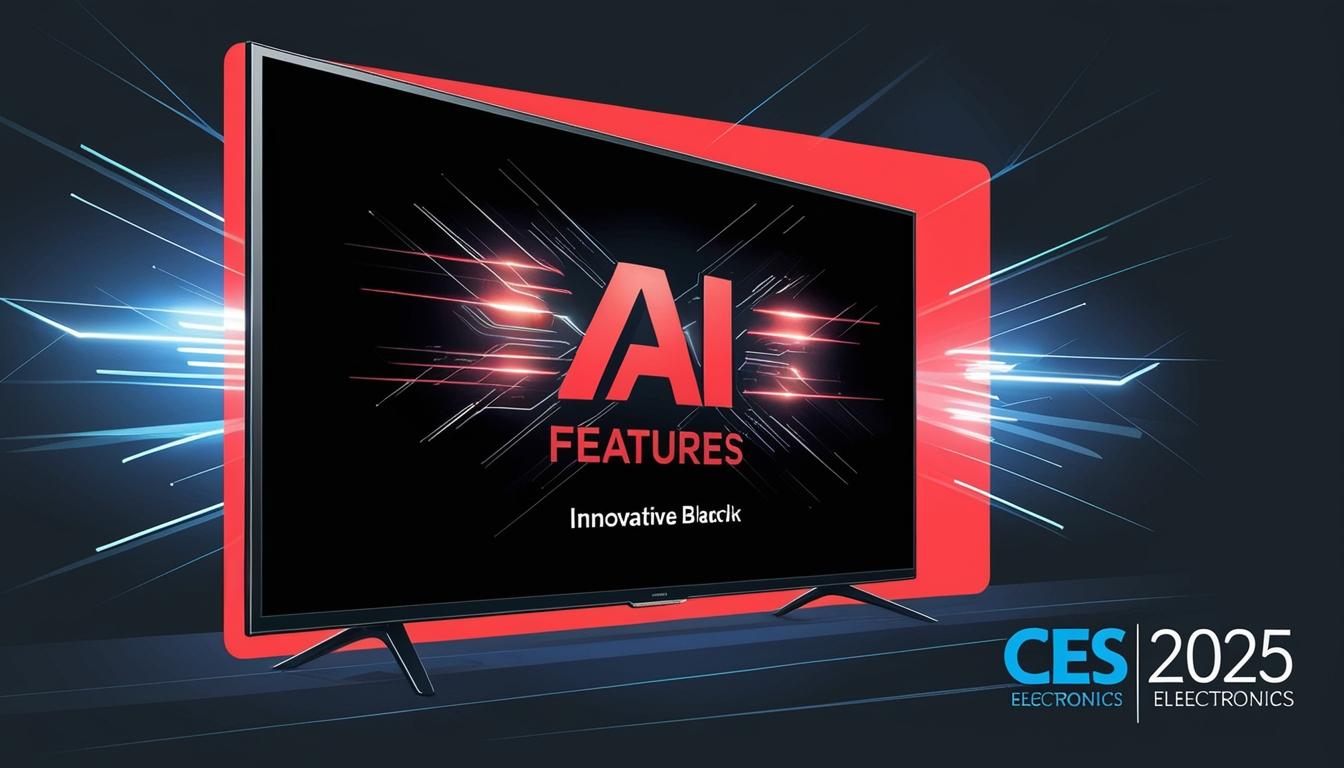The annual Consumer Electronics Show (CES) has kicked off in Las Vegas, showcasing an array of innovative products and emerging technologies set to shape the future of consumer electronics. The event, known for highlighting advancements in various tech sectors, has already seen significant announcements from industry giants such as Samsung, Abbott, and Dell, in addition to contributions from newer, innovative brands.
One of the most notable themes at this year's CES is the integration of artificial intelligence (AI) into consumer products, particularly televisions. Samsung's latest TV models leverage AI upscaling technology, allowing older content to be enhanced through HDR Remastering, thus offering a high dynamic range experience. LG has also introduced a suite of AI features within its television range, including an AI chatbot for enhanced user interaction and a concierge service that uses historical viewing data to provide tailored recommendations. Google's improvement of its TV experience includes the addition of Gemini AI to Google Assistant, facilitating more sophisticated interactions with users.
In terms of advanced healthcare technology, two over-the-counter continuous glucose monitors have been unveiled at CES. Dexcom's device is primarily aimed at individuals with Type 2 diabetes who are not using insulin but is also usable for those without diabetes. This device, which attaches to the arm, provides constant 24/7 glucose monitoring through a connected app. Abbott's Lingo device, on the other hand, caters to a broader audience, offering insights into general health through glucose level tracking and personal coaching on lifestyle choices via an iPhone-compatible app.
Another highlight of the event is the introduction of a novel mobile charging solution, the Swippitt, which claims to charge smartphones in just two seconds. This device employs a battery swap system, allowing users to exchange their depleted phone battery for a fully charged one quickly, presenting a possible revolution in mobile accessory technology.
Wearable technology continues to progress, exemplified by Circular's smart ring, which has received significant upgrades, including health monitoring capabilities like Atrial Fibrillation detection and a digital sizing feature that allows prospective buyers to find their ring size using a smartphone camera.
Roborock has introduced an innovative robot vacuum equipped with a mechanical arm designed to remove small obstacles from the floor during cleaning sessions, utilising OmniGrip technology. Meanwhile, Lenovo has unveiled a rollable laptop, adding to the diverse array of foldable and innovative devices that have garnered attention at CES.
Among other announcements, Ugreen has presented the world’s first 500W charger with multiple USB ports tailored to accommodate high-powered devices such as electric bikes, reinforcing the trend towards more powerful charging solutions.
Smart home technology has also seen advancements, with notable collaborations, including a partnership between Ring and Kidde for smart smoke detectors that integrate with the Ring app to provide alerts. Home Depot has launched its Hubspace line, promising a host of new smart home devices designed for enhanced control over home environments.
In the realm of entertainment, Eclipsa Audio debuted as a new alternative to Dolby Atmos, offering a free and open-source 3D audio format that will be featured in Samsung's new television and soundbar lines.
In summary, CES 2025 has highlighted a future where AI and smart technologies are seamlessly integrated into consumer products, indicating a transformative period for both individual consumers and the broader business landscape as these innovations take root. The implications of these advancements will likely influence business practices and consumer behaviours in the years to come.
Source: Noah Wire Services
